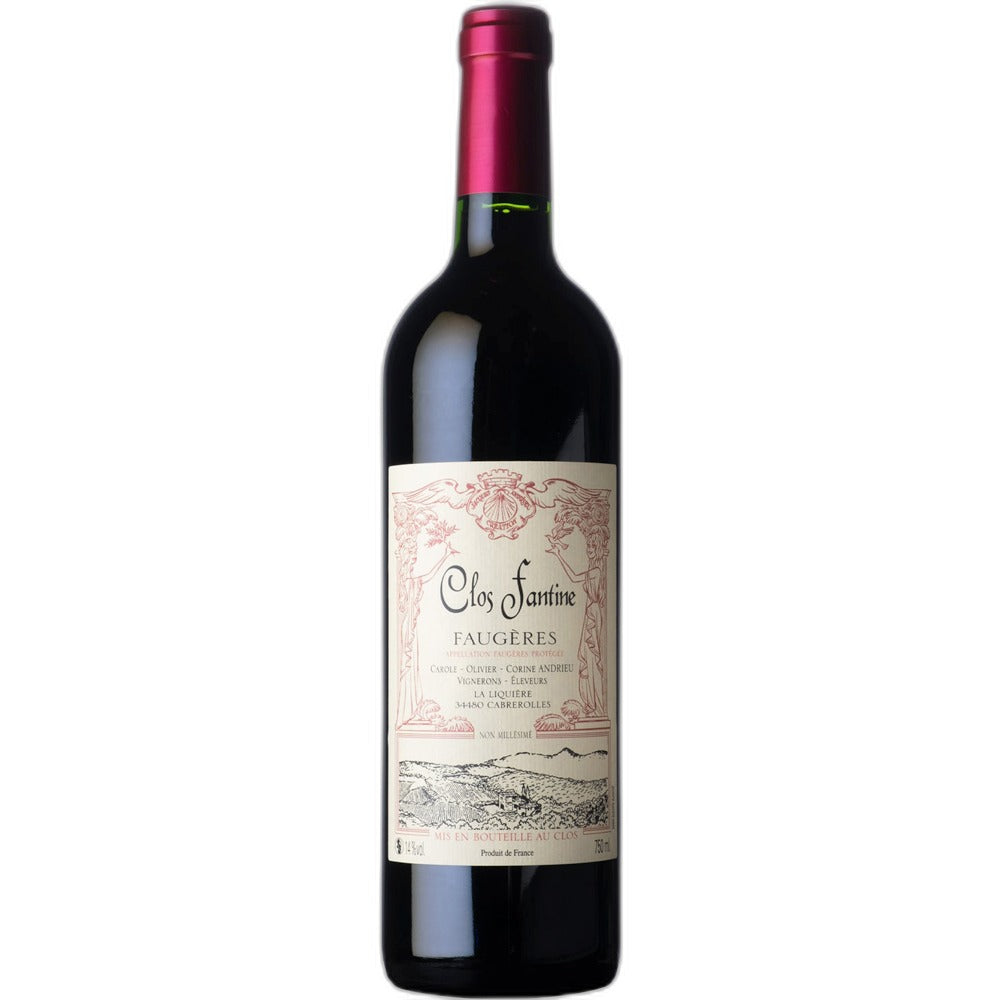
Clos Fantine Cuvée Tradition Faugères 2020
Clos Fantine Cuvée Tradition Faugères 2020
Clos Fantine
Faugeres, Languedoc
Cuvee Tradition is typically made from more of the various Rhone grapes found on the property that make up this pleasingly delicious red. Carignan is usually the lead player (40%), with Grenache (30%) and Syrah (20%) making up most of the balance, with small amounts of Mourvedre or Cinsault rounding it out. The Tradition is accessible younger (than Courtiol) but would easily hit the 10-12 year mark in the cellar in a good vintage. It also shows more red fruit and brighter tones than the Courtiol.
My Tasting Note (2019):
Medium ruby red-purple, vibrant, youthful red edges. Med+ on the nose with juicy and fresh red fruits like bing cherry, red raspberry, and red plum, garrigue Provencal herb notes, a light touch of campfire wood smoke, and some mineral notes that the schiste stone bedrock brings. The palate is medium to full bodied, med+ powdery tannin, very good palate flavor intensity and a long, fruit, mineral and spice laden finish. Excellent. VERY French!
- 40% Carignan, 30% Syrah, 20% Grenache & 10% Mourvèdre
- Grown in mostly hard rock ancient schist and some sandstone soils
- Vine Age: Up to 80 years old
- Farming: Organic
- Destemmed and spontaneously fermented with their natural yeasts in concrete vats
- After fermentation the wine rests in concrete tanks for 18 months and then rests in fiberglass tanks for six more months.
- The wine has not been clarified, no filtration and no added sulphites.
- Alcohol 14%
Corinne makes the wine as she studied oenology at nearby Montpellier. Carole handles the business aspects, while Olivier handles most of the viticulture in the vineyards. Between the three of them they handle all the majority of work that needs to be done.
Faugères is the smallest appellation of the Languedoc with only 1950 hectares. The soil in Faugères is mostly schiste (with a few limestone parcels). While Schiste is a poor nutrient soil, retains water very well (up to 40% of its volume) and also retains heat that is redistributed during the cooler night for a long and slow maturation of the fruit. Being a hard rock, it is quick draining (but with lots of pockets that catch water), nutrient poor and very acidic. The Faugères appellation is also protected from the Tramontane (dry and strong wind from the north) by mountains in the north and overlooks the Mediterranean (20km) with a southern exposure.
No fertilizers are used in the vineyard. Natural cover crop develops and when it is dense enough, it is buried using a plow. Depending on the year, different varieties of plants develop and contribute to the balance of the soil. Each parcel is self-sufficient and in harmony with its own environment.
No systematic treatments are used (no herbicides, fungicides, pesticides, or copper...) to treat the vineyards.
The vines have been farmed this way for decades and natural resistance exists in each parcel. The balance of each parcel is also the reason why they do not need to use any treatment on the vines, and yet are able to harvest a very healthy crop.
- Put together using the Importer (Riviere) and A Blogger's Entry (Rosemary George MW)



